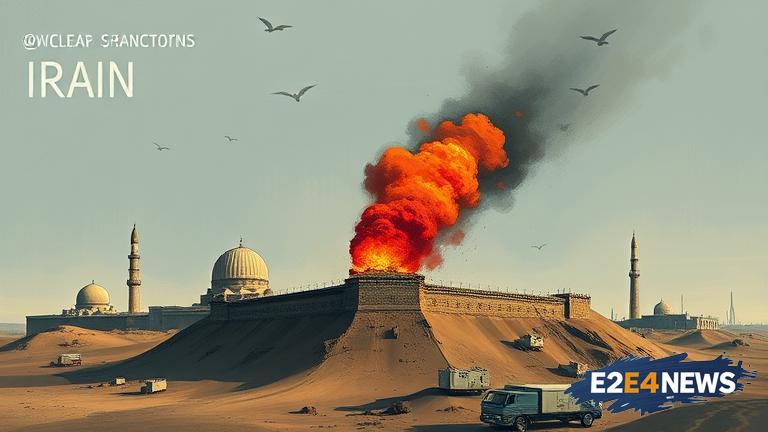Iran is currently at a critical juncture, facing the potential reimposition of sanctions due to its reluctance to engage in meaningful negotiations regarding its nuclear program. The international community, led by the United States and its allies, has been pushing for Iran to curb its nuclear ambitions, which Tehran claims are for peaceful purposes. However, the lack of progress in talks has raised concerns that the situation could escalate, leading to renewed sanctions and potentially even conflict. The sanctions, which were previously lifted as part of the Joint Comprehensive Plan of Action (JCPOA), also known as the Iran nuclear deal, could have severe economic consequences for Iran. The Iranian economy has already been struggling, with high inflation and unemployment rates, and the reimposition of sanctions could exacerbate these issues. The European Union, which has been attempting to salvage the JCPOA, has expressed disappointment at the lack of progress in talks. EU officials have warned that the window for negotiations is rapidly closing, and that Iran must take concrete steps to address concerns over its nuclear program. The United States has also been applying pressure, with the Trump administration having withdrawn from the JCPOA in 2018. The Biden administration has expressed a willingness to re-enter the agreement, but only if Iran returns to compliance with its terms. Iran, however, has been resisting pressure, with Supreme Leader Ayatollah Ali Khamenei stating that the country will not be intimidated by sanctions. The Iranian government has also been accusing the United States and its allies of attempting to undermine its sovereignty. The situation has sparked concerns among global leaders, with many warning of the potential consequences of conflict. The United Nations has called for calm and restraint, urging all parties to engage in constructive dialogue. The International Atomic Energy Agency (IAEA) has also been monitoring the situation, and has expressed concerns over Iran’s nuclear activities. Despite the challenges, there are still hopes that a negotiated solution can be reached. Iran has been engaging in talks with the EU, and there have been reports of progress in recent weeks. However, the pace of negotiations has been slow, and it remains to be seen whether a deal can be reached before the sanctions are reimposed. The consequences of failure could be severe, with the potential for conflict and instability in the region. The global economy could also be affected, with oil prices potentially rising if Iran’s oil exports are disrupted. The situation is being closely watched by global markets, with investors nervous about the potential consequences. In conclusion, the situation regarding Iran’s nuclear program is highly complex and sensitive, with the potential for severe consequences if a negotiated solution is not reached. The international community must continue to push for dialogue and diplomacy, in order to avoid the reimposition of sanctions and the potential for conflict.
